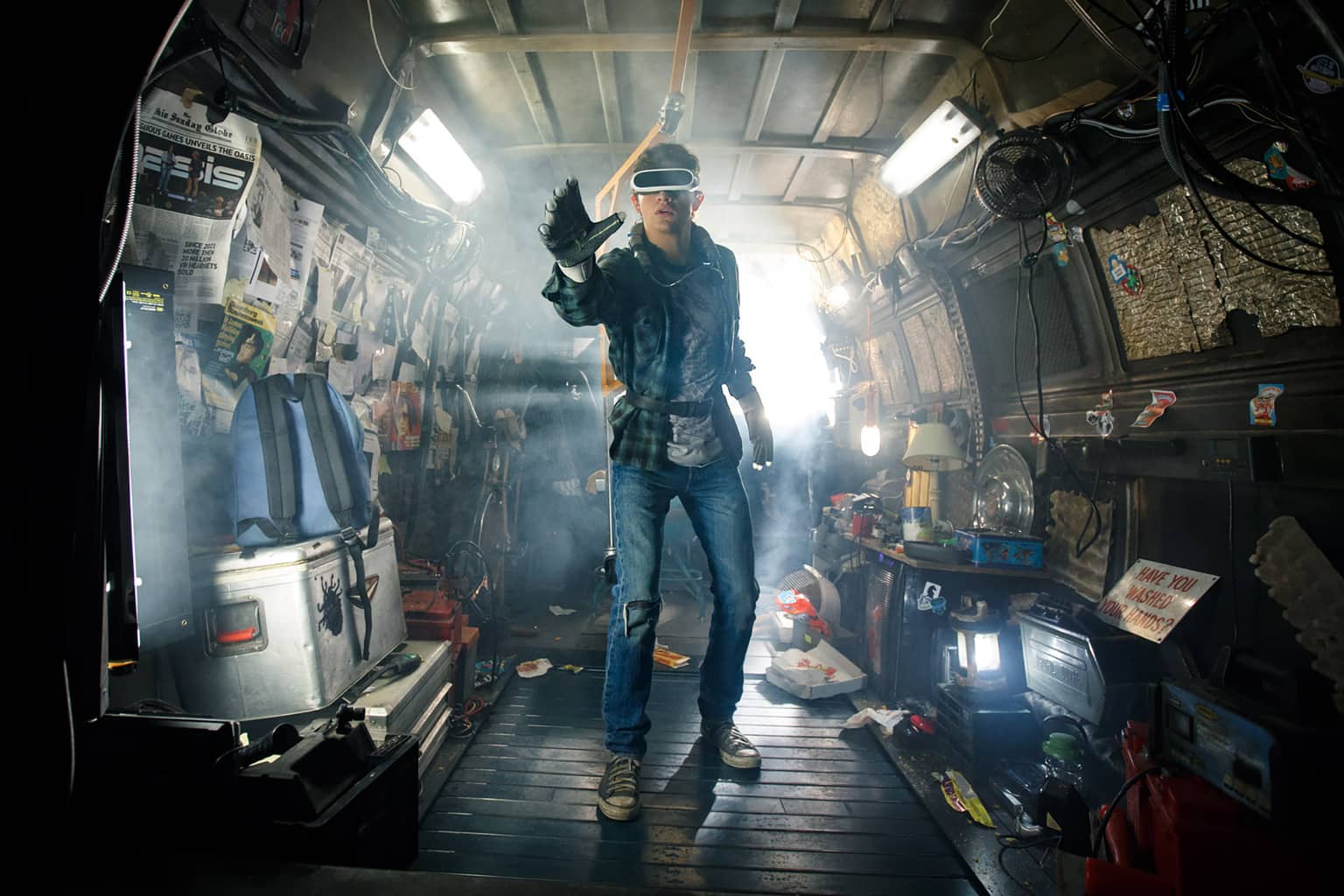
Reviews for Steven Spielberg’s Ready Player One have not only been better than expected, but better than one would hope for. It’s important to acknowledge the contingent of Ready Player One fans who think the book and the movie are triumphant odes to 80s popular culture, but it’s more important to acknowledge the more correct contingent of Ready Player One haters who find the book regressive and the movie ill-equipped to redeem it.
Ready Player One is contrived, egotistic, and pandering. The movie might attempt to co-opt the book’s problems into satire, but since that repurposing uses the exact same nerd-worship tactics, it can’t rise above hypocrisy. The movie might not have the same faults as the book, but it does nothing to repair those faults either.
This isn’t an indictment on the nerd culture Ready Player One revels in. Certainly, passionate fandom and pop-culture obsessiveness is the foundation of culture writing and, for that matter, a website like RELEVANT. It’s not wrong to like stereotypically “dorky” things, either. Movies like Star Wars and books like Game of Thrones have legitimate capacity to empower and inspire people. Ready Player One is not bad because it’s “geeky” or “nerdy” or “lame.” It’s bad because it embraces the worst parts of nerd culture, the parts that treat characters like objects and references like checklists. There’s no soul to this story.
Here’s the synopsis: In a dystopian future, every American spends most of their time in a VR video game called The Oasis. When the founder of The Oasis dies, he leaves behind a trail of clues hidden within its virtual world, and the first person to solve all the clues earns both the founder’s fortune and control over The Oasis itself. The slick-named protagonist Wade Watts wants to be that winner.
Honestly, it’s a super rad premise! The problem is, Ready Player One hamstrings itself by emphasizing Wade’s exhaustive knowledge of 80s pop culture, mastery of which is the key to following the Oasis’ clues, instead of lending him any sort of empathic motivation. Great swaths of the novel are devoted to listing out everything Wade knows about one movie or another, one game or another, or one song or another. He has movies memorized and he tells you about them. He has mad video game skills and he tells you about them. He catches every detail hidden in every Rush song, and he tells you about them. This is the braggiest nerd you’ve ever met, and the problem is, you can’t stop him from talking.
In fairness, that kind of obnoxious cultural elitism would be harmless on its own, but its the backdrop and driver of a plot oriented toward a selfish kid winning a bunch of fame and money. Wade’s positioned against an evil corporate player wanting to win the fortune for himself so he can monetize the Oasis, but that’s the only reason to cheer for Wade to win. There’s no talk in the book of Wade using the fortune to make the world better or “save humanity”—it’s a means for him to be super powerful, super rich, and score the girl he met online. That narrow, selfish intent makes the constant referencing feel self-aggrandizing and self-important, rather than externally valuable. It dooms the book.
Ready Player One has other problems that stood out even by its 2011 publish-date standards. The lead female character is the embodiment of the “manic pixie dream girl” that 2018 has come to condemn. She’s Wade’s love interest, she looks perfect, and she’s also very good at video games and movie quotes. That’s it. Would you believe they end up together? Check another box on the “gross, manipulative fantasy” rubric, please.
From Wade’s friends to his love interests to the challenges themselves, everything in Ready Player One exists to make its main character look awesome. It’s uncomfortable and ingratiating in its self-centeredness and objectification, and that, ultimately, leaves the movie’s retelling toothless, even if it shakes off some of that, “Heh, you see me slay that dragon for you, babe?” sliminess.
More laudatory reviews of Ready Player One, the movie, praise the flick for its ability to maintain all the book’s reverence for 80s culture, but co-opt its obsessiveness into a satirization of geek-dom as a whole. Even if you think the movie’s winking and nudging, beyond just the “Remember this one?!” references, are effective in this regard, that message doesn’t really matter. The nostalgia play in this case is still creating a sort of cultural elitism you’ll find in obscure Reddit threads, snippy Facebook comments, and exclusive Buzzfeed quizzes.
If it wanted to satirize itself, Ready Player One would have to take shots at itself, and it would have to do that by taking down the elitism that drives its own story. The truth is, the players behind this book and this movie just love all this stuff too much to use it as a weapon. The priority here is preservation, not saying anything important, thoughtful, or challenging. Ready Player One doubles down on celebrating the past, but that comes at the expense of saying anything worthwhile about the present.
There’s nothing wrong with dumb fun, and on its own, that’s what this movie can be. Nerding out over an online video game or a fantasy series or a beloved sitcom isn’t bad—that kind of deep passion can drive culture forward—but when that love is self-contained, it’s useless, and that makes the diverted goals of Ready Player One’s book and movie feel in counter to one another. The result? A petty conflict that ultimately sees the two sides shrug, fist-bump, and sit down to play another video game together.
This story is content to pat itself on the back, invite its friends over, and put up a “Nerds Only” sign. Fandom is valuable when it creates a holistic and exclusive community, but Ready Player One isn’t doing that. These dorks only have one controller, and they’re not willing to give anyone else a turn.






















